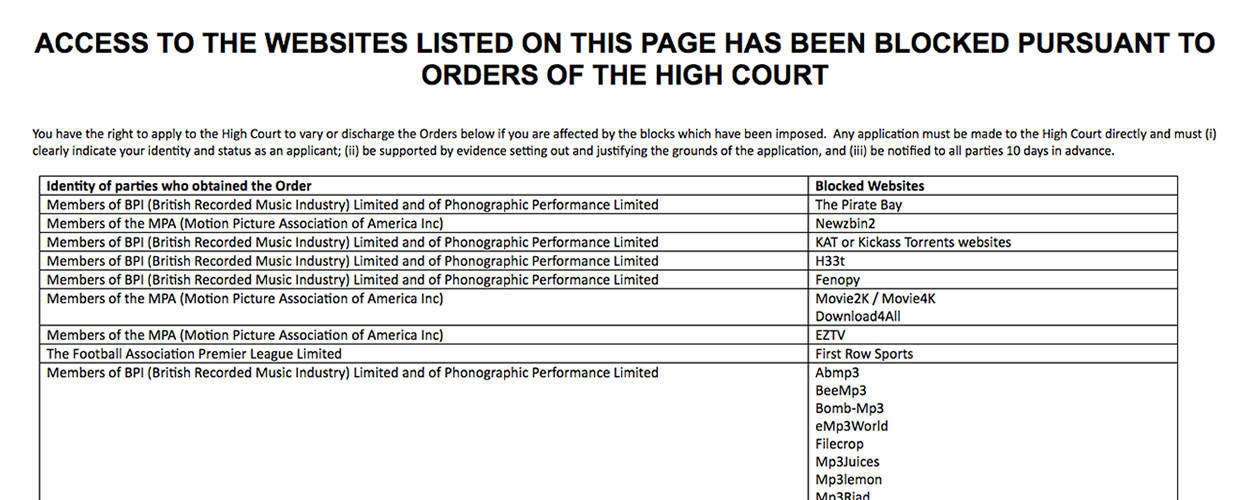This website uses cookies so that we can provide you with the best user experience possible. Cookie information is stored in your browser and performs functions such as recognising you when you return to our website and helping our team to understand which sections of the website you find most interesting and useful.
Business News Digital Legal
Web-blocking begins in Canada
By Chris Cooke | Published on Tuesday 19 November 2019

Canada has joined the web-block party, despite the country’s tel-co regulator last year saying it didn’t have the power to set up a web-blocking agency. The Canadian Federal Court, however, reckons it does have the authority to issue a web-block injunction as part of copyright lawsuit against an unlicensed video service called GoldTV.ca.
Web-blocking is where courts or government agencies issue orders that force internet service providers to block their customers from accessing websites that prolifically infringe other people’s copyrights. Such blockades aren’t yet available in every country but, where they are, they have become a preferred anti-piracy tactic of the music and movie industries.
Some ISPs object to the idea of web-blocks, but some actually support them as a reasonable and balanced approach to tackling online piracy. That includes in Canada where many – though not all – ISPs previously backed a proposal that government regulator the CRTC should set up a web-blocking agency. Though it ultimately declined to do so.
It was some of those same ISPs – involved in GoldTV.ca case because they are also cable TV companies – that asked the Canadian Federal Court to issue a web-block against that particular piracy site. And last week a judge agreed to order an assortment of ISPs, well beyond those requesting the injunction, to block access to the GoldTV.ca site.
The Canadian court was seemingly influenced in its decision making by web-blocking here in the UK, the Canadian and British copyright systems being very similar. Critics of the anti-piracy tactic always point out that it is relatively easy for web-savvy people to circumvent the blockades. But the judge hearing the case ruled that – while that is true – web-blocking has still had some success in other countries.
According to Torrentfreak, judge Patrick K Gleeson said: “It’s clear from the evidence that site-blocking will not eliminate user access to infringing services. However, the evidence does establish that in those jurisdictions where site-blocking measures have been implemented there has been a significant reduction in visits to infringing websites”.
To that end, he added, “I am satisfied that a site-blocking order is an effective means of limiting access to GoldTV Services.
It remains to be seen if any of the other ISPs affected by the injunction appeal Gleeson’s ruling. In the main, in most other countries, once web-blocks are in place even those ISPs that previously criticised the approach fall in line.
Either way, in the absence of any appeal it would seem that, while the CRTC may not be empowered to instigate web-blocks on copyright grounds, the Canadian courts – like their UK counterparts – are.





